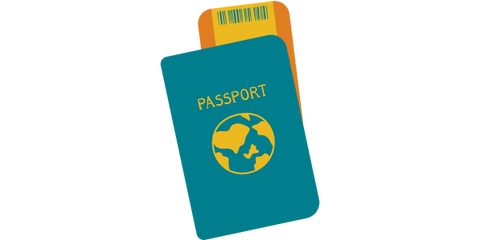
What comes to mind when you think of Amsterdam? Architecture lovers may conjure images of the city’s beautifully intricate canal system or centuries-old neo-gothic buildings with finials that pepper the skyline. For cyclists, mention of the Dutch capital city may bring to mind its premier bicycling infrastructure.
Amsterdam has something to offer for almost anybody, but for marijuana enthusiasts, the city’s best known for its cannabis culture and infamous cafes. But just how did Amsterdam come to be associated with ganja, and why do cannabis users like Amsterdam so much?
When Did Amsterdam Legalize Cannabis?
Amerstdam’s Red Light District De Wallen is known all around the world, but not just for the legal sex workers operating windows up and down the canal. The neighborhood also houses a number of coffeeshops where residents and tourists can purchase cannabis.
Cannabis coffeeshops in Amsterdam have been slinging some of the world’s most potent marijuana since the 1970s, but contrary to popular belief, cannabis isn’t actually legal in the Netherlands. So how exactly does that work?
In 1972, the Dutch government changed its drug laws by creating two categories of substances—hard drugs and soft drugs. Cannabis, along with some forms of sedatives, falls into the category of soft drugs. While the soft drugs aren’t technically legal, the government enacted a non-enforcement policy in which possession of small amounts of cannabis won’t result in prosecution.
In addition to this non-enforcement policy, the Dutch government allows establishments known as coffeeshops to sell cannabis, so long as they follow the rules outlined in the toleration policy:
-
Coffeeshops must not cause any nuisance;
-
Coffeeshops are not permitted to sell hard drugs;
-
Coffeeshops are not permitted to sell cannabis to minors;
-
Coffeeshops are not permitted to advertise drugs;
-
Coffeeshops are not permitted to sell large quantities (over 5 grams of cannabis) in a single transaction.
Despite this relatively relaxed attitude towards cannabis, cultivating the plant is still illegal. This creates a “backdoor policy” where cafes are allowed to sell cannabis, but they can only procure it from illegal vendors.
Amsterdam Cannabis Laws For Tourists

A significant portion of Amsterdam’s economy revolves around tourism, and many tourists visit the city specifically to visit the coffeeshops and take part in Amsterdam’s renowned cannabis culture. However, some Dutch politicians have sought to limit the amount of “undesirable tourists.”
Certain regions in the Netherlands like Maastricht and Sittard-Geleen have implemented restrictions on coffeeshops which prevent them from selling to tourists. The current mayor of Amsterdam Femke Halsema has expressed her desire to create similar restrictions in the capital city by the time covid 19 travel restrictions are lifted. It’s unclear when the new policy will go into effect or if it ever will at all.
How Much Does Amsterdam Profit From Cannabis?
The Netherlands’ laissez-faire attitude towards cannabis has made the country a substantial sum in tax revenue. According to one estimate, the Dutch government makes over 400 million euros a year in tax revenue from its coffeeshops.
Plus, the cannabis industry in Holland draws in millions of tourists annually. These tourists aren’t just spending money at the cafe; they’re staying in hotels, visiting museums, eating at restaurants, and bringing lots of cash into the local economy.
What’s The Cost Of Cannabis In Amsterdam?

Like with the cannabis stateside, prices will vary between coffeeshops and between individual strains. On the lower end of things, you can find a gram of cannabis flower or pre-rolled joint for as little as six euros. Typically, consumers can expect to pay somewhere between ten and fifteen euros a gram for cannabis in Amsterdam, though it can surpass twenty euros a gram for top-shelf bud.
Hash, a solventless concentrate made of compressed kief, which is extremely popular among Europeans, can also be found in Amsterdam’s coffeeshops. However, you may be paying over forty euros a gram for this premium hashish. Though honestly, this is a small price to pay for some of the most sought-after cannabis in the world. You know what they say, when in Rome do as the Romans do, and when in Amsterdam, smoke like the Dutch!



